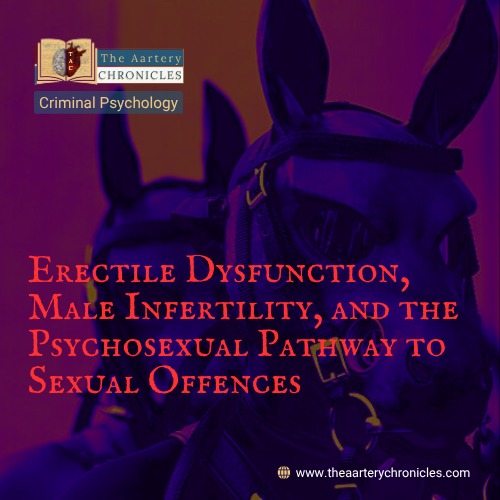

Toxic Masculinity And Men’s Health
Introduction
Toxic masculinity refers to a set of harmful beliefs and behaviors associated with traditional male roles, which have been taken to an extreme. This concept highlights the detrimental impact of exaggerated notions of masculinity, including the glorification of aggression, emotional suppression, and dominance. Toxic masculinity not only perpetuates negative stereotypes and fosters unhealthy habits but also undermines mental health and social relationships across all genders.
By enforcing rigid standards of what it means to be “manly,” toxic masculinity creates a framework that often leads to isolation, risky behaviors, and resistance to seeking help. This Article explores how these distorted ideals impact individuals and society as a whole.
How Toxic Masculinity Affects men's Mental Health
- Emotional Suppression: Men are often taught to “toughen up” and ignore emotional pain.
- This suppression creates shame around expressing feelings, making anger the primary acceptable emotion.
- Over time, this can result in difficulties with empathy, increased anxiety, and emotional isolation.
- Resistance to Seeking Help: Toxic masculinity discourages men from seeking mental health support, equating vulnerability with weakness.
- This reluctance can lead to untreated mental health issues, worsening symptoms, and increased risks of isolation and self-harm.
- Unhealthy Lifestyle Choices: The pressure to maintain a “tough” persona often results in men engaging in risky behaviours, such as:
- Dangerous sports
- Excessive alcohol use
- Neglecting self care thereby health.
This can exacerbate mental health problems and contribute to physical harm.
- Controlling Behaviour: Toxic masculinity promotes dominance and control in relationships, leading to conflicts and potential abuse.
- This behaviour can stem from internal insecurities and contribute to social and personal difficulties.
How Toxic masculinity affects men's physical health
Toxic masculinity, characterized by norms that promote self-sufficiency, bravery, and emotional restraint, adversely affects men’s physical health.
- Men adhering to these masculine beliefs are less likely to seek professional help during emotional or personal crises, which contributes to poor mental health and higher rates of substance abuse and suicidal tendencies.
- Additionally, masculinity norms are linked to risky behaviours, such as binge drinking and reckless driving, and discourage preventive care, leading to higher morbidity and mortality rates.
- Men often avoid reporting symptoms and delay seeking medical care due to embarrassment or the belief that it conflicts with masculine ideals. This Further can result in inadequate treatment and poorer health outcomes.
8 Benefits of Addressing Toxic Masculinity
Addressing toxic masculinity offers a range of significant benefits, particularly in the context of creating healthier individuals, workplaces, and societies. Here are some key advantages
1. Improved Mental Health
By challenging the rigid norms of toxic masculinity, men are encouraged to embrace emotional openness and vulnerability. This shift helps reduce the stigma around mental health issues.
- Allows men to seek support
- They express their feelings more freely.
As a result, mental health improves, and the risk of issues like depression and anxiety is mitigated.
2. Enhanced Workplace Culture
Redefining masculinity contributes to a more inclusive and supportive workplace environment.
- When toxic masculinity is addressed, workplaces become more respectful and equitable, fostering better collaboration and communication.
- This shift not only enhances employee satisfaction but also drives productivity and creativity by creating a psychologically safe space for all employees.
3. Reduction in Gender Inequality
Toxic masculinity often perpetuates power imbalances and gender inequality.
- By confronting and redefining these harmful norms, organizations can promote a culture of respect and equality.
- This helps to dismantle barriers that inhibit women’s advancement and supports a more balanced and fair work environment.
4. Decreased Aggression and Violence
Challenging the aggressive and dominating aspects of toxic masculinity can lead to a reduction in workplace violence and interpersonal conflict.
- Encouraging alternative forms of strength and leadership fosters a more harmonious and cooperative work environment.
5. Increased Emotional Intelligence
- Redefining masculinity to include traits like empathy and emotional intelligence benefits both individuals and organizations.
- Employees who can navigate their emotions and understand others’ perspectives contribute to better team dynamics and more effective problem-solving.
6. Broadened Representation and Inclusivity
- Embracing a redefined concept of masculinity allows for greater inclusivity across different races, sexual orientations, and backgrounds.
- This broader representation ensures that all men feel valued and understood, contributing to a more diverse and equitable society.
7. Stronger Personal Relationships
By encouraging men to express their emotions and engage in healthy communication, addressing toxic masculinity enhances personal relationships.
- Men who are more in touch with their feelings and who practice empathy build stronger, more fulfilling connections with others.
8. Positive Societal Impact
A collective effort to address and redefine toxic masculinity contributes to a more just and compassionate society. As societal norms evolve, the positive changes in individual behavior and organizational culture ripple outward, fostering a culture of respect and equality that benefits everyone.
How Toxic masculinity Affects Parenting
A recent study from the University of Auckland highlights a significant link between toxic masculinity and poor parenting, revealing how entrenched gender norms impact family dynamics.
- The research, published in *Social Psychological and Personality Science*, found that both fathers and mothers exhibiting toxic masculinity were less responsive and engaged in their parenting.
- This lack of responsiveness—characterized by reduced warmth, involvement, and sensitivity—has severe implications for child development, potentially leading to
- Behavioural problems
- Emotional difficulties
- Academic challenges
The study suggests that toxic masculinity influences parenting practices beyond fathers, affecting mothers as well. For instance, mothers who endorsed these beliefs might either follow traditional fatherly roles or restrict the father’s involvement in parenting, thereby impacting their own responsiveness. The broader implications of this research stress the urgent need to address and challenge toxic masculinity to improve family dynamics and support healthier child development.
Conclusion
In conclusion, masculinity is not a fixed or monolithic construct but rather a deeply personal and evolving set of beliefs and behaviors. The rigid standards and harmful norms associated with toxic masculinity—such as emotional suppression, dominance, and resistance to vulnerability—have profound negative effects on mental health, physical well-being, and family dynamics. By challenging these outdated ideals and embracing a more flexible, empathetic approach to masculinity, individuals can foster healthier relationships, improve mental and physical health, and contribute to a more equitable society. Embracing a diverse range of masculine expressions allows for personal growth and societal progress, ultimately leading to a more compassionate and inclusive world.

Author
Abhigyan Barooah








